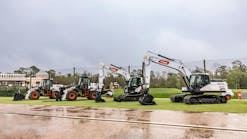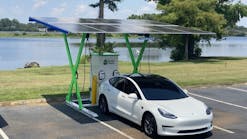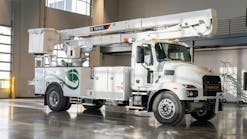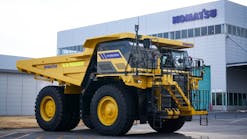Hydrogen burst on the scene during Conexpo. JCB unveiled an internal combustion engine in the UK prior to the show and showcased it in Las Vegas. The engine burns hydrogen instead of diesel and provides an alternative to hydrogen fuel cells, which for various reasons are not attractive for off-road heavy equipment applications currently.
An analysis of hydrogen as a fuel by Interact Analysis paints a promising picture for the use of hydrogen engines, or H2 ICE. (Read the report here.)
On the plus side, according to the market analysis, H2 ICE allow manufacturers to use current assembly plants, simply dropping in the engines and fuel tanks. This keeps production and acquisition costs in line. Hydrogen engines can handle the demands of heavy equipment applications better than batteries, and they are less expensive and more resilient than hydrogen fuel cells.
Current barriers to the use of hydrogen fuel mirror those for electricity: refueling infrastructure and the cost of fuel (battery materials in the case of electric power).
But the report reveals one glaring obstacle that battery power does not face: regulators eager to promote electric as an alternative. At the end of March, the EPA granted California two Clean Air Act waivers that will allow the state to accelerate plans to increase sales of zero-emission trucks in the state.
No such incentive or law covers hydrogen fuel.
The response, however, should not be to start legislating hydrogen; rather, the market should drive the solutions. This unpopular view flies in the face of government mandates aimed to push the purchase of cars and trucks—and construction equipment—toward one method of propulsion over another. Instead of another round of incentives targeting hydrogen—or whatever other fuel may gain favor in the future—we should free up engine and equipment manufacturers to invest in research that drives the best solutions to emissions reduction.
Public money used as incentives, or kickbacks, to promote the purchase of electric-powered equipment and trucks removes the competitive incentive to come up with something better.






